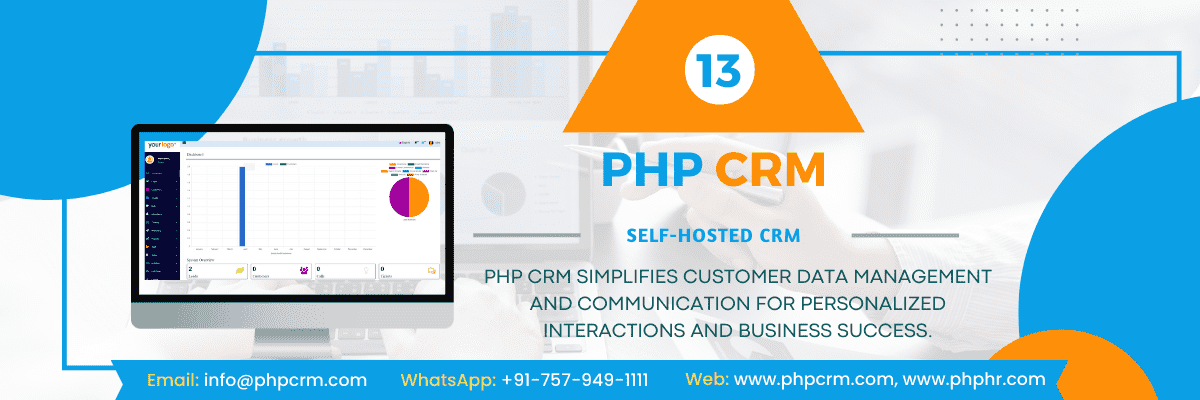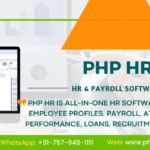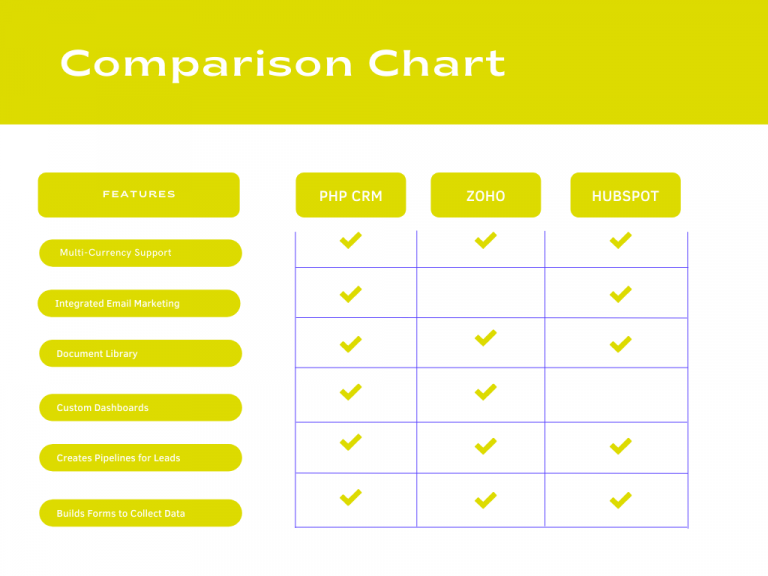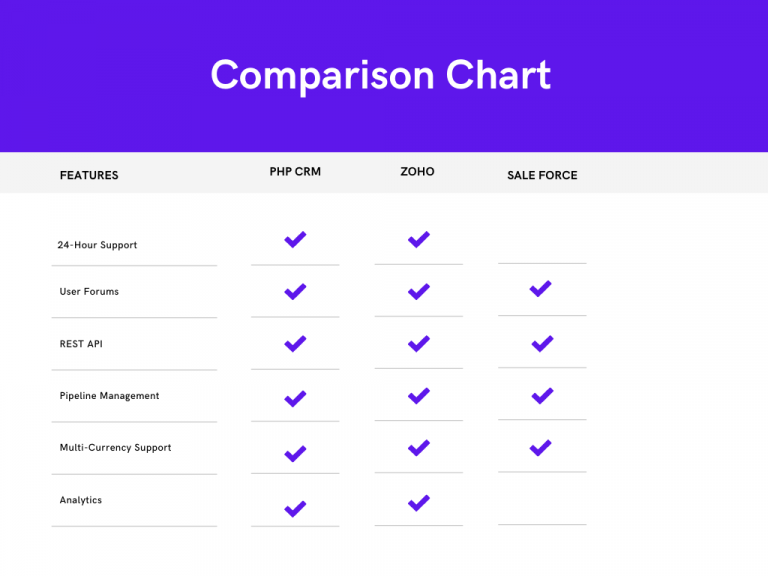Best CRM Software – PHP CRM 13 Released

In today’s competitive business landscape, nurturing strong customer relationships is paramount to success. Enter PHP CRM, a dynamic and versatile solution designed to revolutionize how businesses manage interactions with their customers. Built on the robust PHP programming language, PHP CRM offers a comprehensive suite of features tailored to streamline sales, marketing, customer service, and more.
At its core, PHP CRM serves as a centralized hub where businesses can store, organize, and leverage valuable customer data. From contact information to purchase history, PHP CRM provides a 360-degree view of each customer, empowering businesses to deliver personalized experiences and foster long-lasting relationships.
But PHP CRM is more than just a database – it’s a powerful tool for driving growth and efficiency across all facets of your organization. With features like lead management, sales automation, and marketing campaign tracking, PHP CRM enables sales teams to identify opportunities, streamline workflows, and close deals faster.
Meanwhile, customer service teams can leverage PHP CRM to deliver exceptional support experiences, with features for managing inquiries, resolving issues, and tracking service metrics. And with robust analytics and reporting capabilities, businesses can gain actionable insights into their sales, marketing, and customer service efforts, driving informed decision-making and continuous improvement.
What sets PHP CRM apart is its flexibility and scalability. Whether you’re a small startup or a large enterprise, PHP CRM can be customized to meet your unique needs and workflows. Plus, with its open architecture and seamless integration capabilities, PHP CRM seamlessly integrates with your existing systems and tools, providing a unified platform for managing all aspects of your business.
In conclusion, PHP CRM is not just a software solution – it’s a strategic asset that empowers businesses to thrive in today’s fast-paced, customer-centric market. With PHP CRM, you can unlock the full potential of your customer relationships, drive revenue growth, and position your business for long-term success.
Customer Management System:
At the heart of the PHP CRM lies the Customer Management System, designed to centralize and streamline interactions with clients. It serves as a comprehensive repository of customer data, including contact information, purchase history, preferences, and interactions. By consolidating this information into a single platform, organizations can deliver personalized experiences, anticipate customer needs, and foster long-term relationships. Advanced CRM features such as customer segmentation, lead scoring, and automated workflows enable targeted marketing campaigns and proactive customer engagement. Moreover, robust analytics and reporting capabilities empower organizations to gain actionable insights into customer behavior, driving informed decision-making and continuous improvement initiatives.
Lead Management System:
The Lead Management System within the PHP CRM empowers organizations to track, nurture, and convert leads into loyal customers. It offers a centralized platform to capture and organize leads, allowing sales teams to prioritize their efforts efficiently. Automated lead scoring mechanisms help identify high-potential leads, enabling sales representatives to focus their attention where it matters most. Furthermore, lead nurturing tools facilitate personalized communication and targeted marketing campaigns, guiding leads through the sales funnel. With comprehensive lead analytics and reporting, organizations can refine their lead generation strategies, optimize conversion rates, and drive revenue growth.
Attendance Management System:
Efficient workforce management is facilitated by the Attendance Management System integrated into the PHP CRM. This feature provides a convenient solution for tracking staff attendance, ensuring punctuality, and managing leave requests effectively. Automated attendance tracking minimizes manual errors and streamlines payroll processing, saving time and resources. Supervisors gain real-time visibility into staff attendance records, allowing them to address attendance issues promptly and enforce attendance policies consistently. Additionally, integration with scheduling tools enables seamless coordination between attendance data and work schedules, optimizing workforce productivity and operational efficiency.
Staff (Users) and Role Management:
In a PHP CRM system, Staff (Users) and Role Management serve as the cornerstone of organizational structure and data security. Administrators wield the power to create user accounts, assign roles, and manage permissions with precision. Roles can be tailored to match organizational hierarchies and responsibilities, ensuring that each staff member has appropriate access levels. For instance, managers might have access to sensitive client data and financial information, while frontline staff may only access customer interaction records. This granular control not only safeguards sensitive information but also streamlines workflow by ensuring that staff members have access to the resources they need to fulfill their roles effectively.
Appointment Management System:
The Appointment Management System integrated into the PHP CRM simplifies scheduling and enhances customer engagement. This feature enables organizations to efficiently manage appointments, consultations, and meetings with clients. Through a user-friendly interface, staff members can view available time slots, schedule appointments, and send automated reminders to clients, reducing no-show rates and optimizing appointment utilization. Moreover, integration with staff calendars and real-time availability updates ensure seamless coordination and minimize scheduling conflicts. By providing clients with the flexibility to book appointments online and receive timely reminders, organizations enhance customer satisfaction and streamline their service delivery process.
Files Management System:
The Files Management System within the PHP CRM facilitates organized storage and easy access to essential documents, files, and attachments. It serves as a centralized repository where staff members can upload, share, and collaborate on documents related to customer interactions, projects, and tasks. Robust file organization features, such as folder structures, tags, and search functionalities, enable staff members to quickly locate and retrieve relevant files, reducing time spent on manual document retrieval. Version control mechanisms ensure data integrity and prevent conflicts, allowing staff members to collaborate seamlessly on shared documents. Furthermore, integration with document editing tools and third-party storage platforms enhances productivity and enables efficient document management workflows. By centralizing document storage and streamlining access, the Files Management System optimizes workflow efficiency, fosters collaboration, and enhances data security.
Quote Management System:
The Quote Management System integrated into the PHP CRM streamlines the quotation process and enhances sales effectiveness. This feature enables organizations to create, manage, and track quotes for products and services, ensuring accuracy and consistency in pricing and terms. Through customizable quote templates and automated calculations, staff members can generate professional-looking quotes quickly and accurately, reducing turnaround time and improving customer responsiveness. Integration with inventory and pricing databases ensures that quotes reflect current product availability and pricing information, minimizing errors and discrepancies. Additionally, tracking features enable staff members to monitor the status of quotes, follow up with clients, and analyze quote conversion rates. By streamlining the quote management process and providing insights into sales performance, the Quote Management System empowers organizations to optimize sales processes, increase win rates, and drive revenue growth.
User Management System:
The User Management System integrated into the PHP CRM enables administrators to manage user accounts and permissions efficiently, ensuring secure access to system resources and data. This feature allows administrators to create, edit, and deactivate user accounts, as well as assign roles and permissions based on organizational requirements. Granular access controls enable administrators to restrict access to sensitive data and functionality, safeguarding against unauthorized access and data breaches. Additionally, audit trails and activity logs provide visibility into user actions and changes, facilitating compliance with regulatory requirements and internal policies. Integration with single sign-on (SSO) and identity management systems enhances user authentication and access management, simplifying user onboarding and offboarding processes. By providing centralized user administration and robust access controls, the User Management System enhances security, governance, and compliance within the CRM environment.
Expense Management System:
The Expense Management System integrated into the PHP CRM simplifies expense tracking and management, empowering organizations to optimize spending and maintain financial transparency. This feature allows staff members to record and categorize expenses incurred for business operations, projects, and client engagements. Customizable expense categories and tags enable detailed expense tracking and analysis, facilitating cost control and budget adherence. Integration with payment records and receipts streamlines expense reconciliation processes, reducing manual effort and minimizing errors. Additionally, approval workflows and spending limits ensure accountability and compliance with expense policies. Advanced reporting and analytics capabilities provide insights into expenditure patterns, enabling organizations to identify cost-saving opportunities, allocate resources efficiently, and improve overall financial health.






